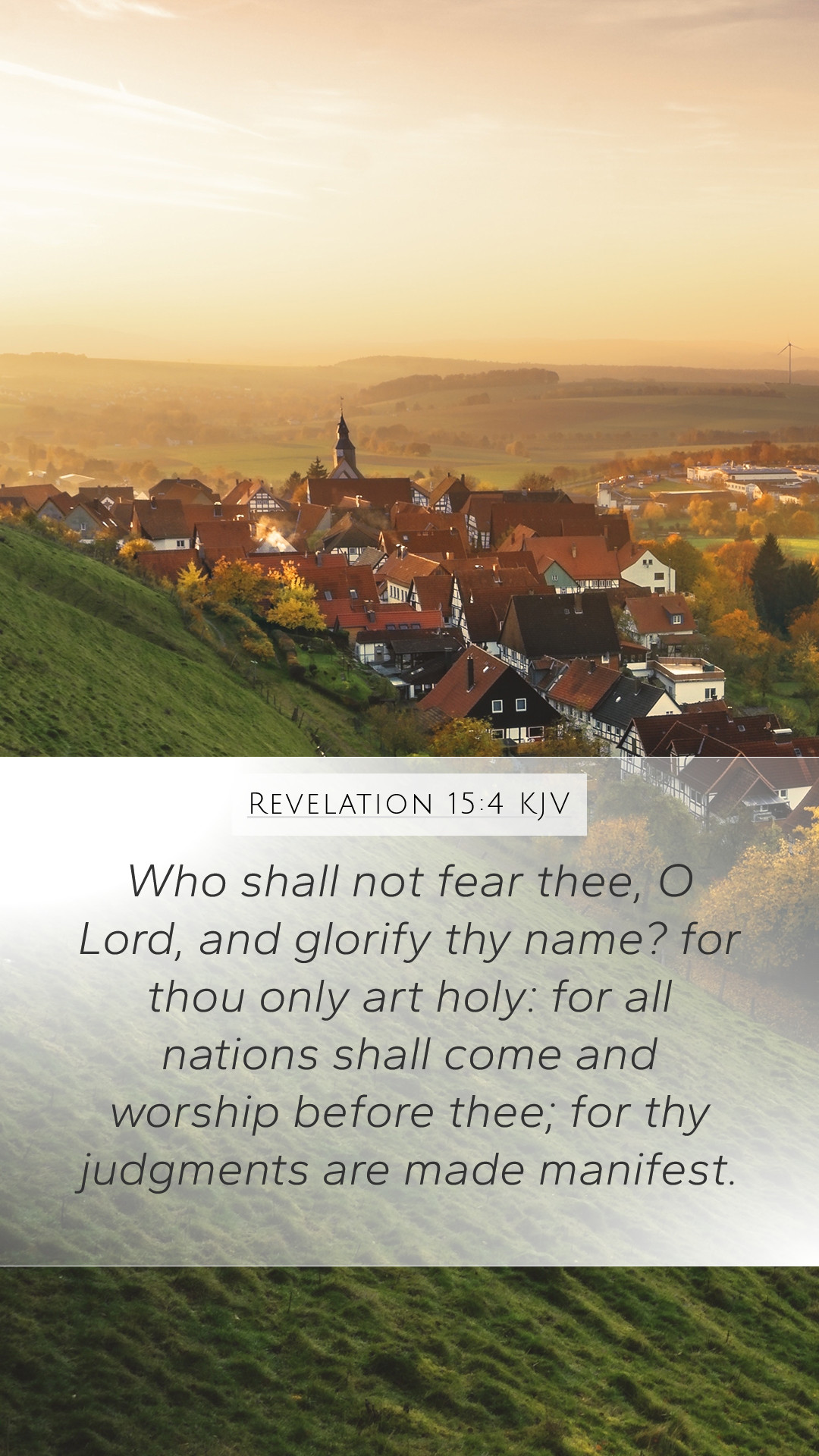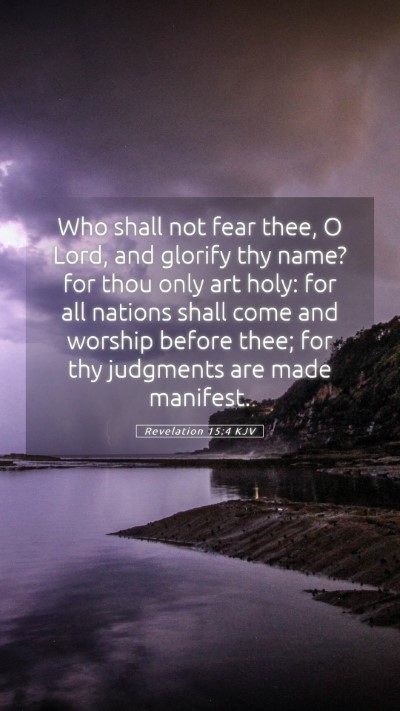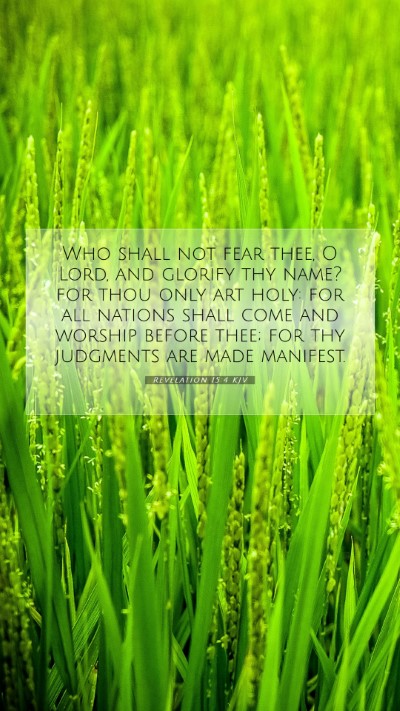Understanding Revelation 15:4
Revelation 15:4 states, "Who shall not fear thee, O Lord, and glorify thy name? For thou only art holy: for all nations shall come and worship before thee; for thy judgments are made manifest." This verse encapsulates a profound recognition of God's holiness, authority, and the response of all nations to His divine judgment.
Bible Verse Meaning
To grasp the meaning of Bible verses, especially in the context of Revelation 15:4, one must consider the overarching themes prevalent throughout the Bible. The commentary insights from various scholars help unravel layers of this profound scripture.
Interpretation Insights
- Matthew Henry notes that this verse highlights the universal nature of God’s sovereignty. Every nation will ultimately recognize His divine authority and holiness.
- Albert Barnes emphasizes that the fear mentioned here is a respectful awe and reverence towards God, underscoring that His judgments reveal His character and purpose.
- Adam Clarke draws attention to the worship aspect; all nations acknowledging God signifies a culmination of humanity’s spiritual journey towards unity in faith.
Scriptural Analysis
In-depth scripture analysis reveals the significance of worship and reverence in Revelation. The verse encourages believers to recognize both God's authority and His holiness, which invites reflection on daily life.
Contextual Significance
Understanding scripture involves looking at the context in which Revelation 15:4 appears. It follows a series of tribulations and judgments in the preceding chapters, emphasizing God’s ultimate triumph and justice.
Key Themes Explored:
- Divine Holiness: The recognition that God is exclusively holy, setting Him apart from all creation.
- Universal Worship: The prophecy that all nations will come before God, indicative of His inclusive reign over all people.
- Manifest Judgments: God’s judgments are a revealing of His character and righteousness, signifying that righteousness will ultimately prevail.
Bible Verse Commentary
This verse serves as a call to biblical exegesis, inviting deeper reflection on its ramifications. As per Matthew Henry, the verse is a celebration of God's eternal kingship and holiness.
Worship and Reverence
Scholars contend that the fear described in this verse underscores the appropriate response of humanity to God’s majesty. As Albert Barnes elaborates, this is not fear in the sense of terror but rather awe that compels believers to glorify God’s name willingly and reverently.
Application in Daily Life
Believers are called to apply this understanding of reverence and worship in their daily lives. Acknowledging God's holiness transforms how individuals approach prayer, worship, and community interactions, embodying a spirit of respect and love.
Related Bible Cross References
- Psalm 86:9: "All nations whom you have made shall come and worship before you, O Lord, and shall glorify your name."
- Isaiah 45:23: "I have sworn by myself; the word has gone out from my mouth in righteousness and shall not return: 'To me every knee shall bow, every tongue shall swear allegiance.'
- Philippians 2:10-11: "So that at the name of Jesus every knee should bow, in heaven and on earth and under the earth, and every tongue confess that Jesus Christ is Lord, to the glory of God the Father."
Conclusion
In conclusion, Revelation 15:4 serves as a powerful reminder of the significance of worship, the holiness of God, and the ultimate recognition of His sovereignty by all nations. For believers engaging in bible study, understanding this verse provides an essential foundation for acknowledging God's character and responding appropriately in faith and worship.


